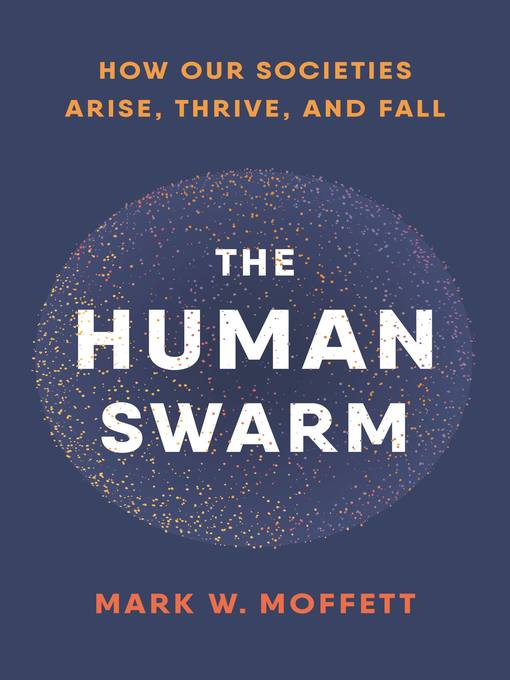
The Human Swarm
How Our Societies Arise, Thrive, and Fall
کتاب های مرتبط
- اطلاعات
- نقد و بررسی
- دیدگاه کاربران
نقد و بررسی

Starred review from March 1, 2019
Tropical biologist Moffett (visiting scholar, Harvard Univ.; Adventures Among the Ants) integrates research in biology, sociology, anthropology, and psychology to explore the nature and evolution of human societies. Beginning with the earliest humans, the author describes how cultures evolved from nomadic hunter-gatherer bands to tribes, villages, chiefdoms, and, finally, to the large complex states of today. For comparison, the author discusses various animal communities, including those of other primates. He argues that in significant ways, human societies resemble large ant populations more than they do that of chimps or bonobos, our closest genetic relatives. In addition, Moffett explains how human societies became so large, why all eventually die out, and the role of families and kin in their functioning. Some may bristle at the similarities made between human and Argentine ant societies, but Moffett argues his points well and provides a well-researched and richly detailed account of why societies have been a fundamental part of the human experience since our earliest ancestors. VERDICT Highly recommended for fans of Jared Diamond's Collapse: How Societies Choose To Fail or Succeed and Yuval Harari's Sapiens: A Brief History of Humankind.--Cynthia Lee Knight, Hunterdon Cty. Historical Soc., Flemington, NJ
Copyright 2019 Library Journal, LLC Used with permission.

February 15, 2019
Scientists routinely explain that humans rule the planet because of our intelligence, tools, or language, but this eye-opening account will convince most readers that our biggest asset is our ability to be comfortable around strangers.A research associate at the Smithsonian and a visiting scholar at Harvard's Department of Human Evolutionary Biology, Moffett (Adventures Among Ants: A Global Safari with a Cast of Trillions, 2010, etc.) points out that humans will walk into a cafe or stadium full of unfamiliar people without thinking twice. A chimpanzee, wolf, lion, or mouse encountering strangers could be attacked and perhaps killed. This ability--not IQ--has allowed humans to swarm over the world, argues the author. We belong to a society Moffett defines as "a discrete group of individuals amounting to more than a simple family...whose shared identity sets them apart from other such groups and is sustained continuously across the generations." Most animal colonies, flocks, herds, schools, packs, swarms, or prides are simply creatures getting together informally, but a small minority qualify as societies because members recognize who belongs and who doesn't. These provide access to resources and protection; however, despite the popular belief, cooperation is optional among higher animals. Lions do not necessarily hunt as a team, and a chimpanzee feels no obligation to share food. The author leaves no doubt that ants form the only society rivaling that of humans, featuring mutual cooperation, division of labor, and self-sacrifice. Much of the book is a fascinating exploration of how members of human societies identify who belongs and why most believe that their society is superior. Flags, food, hairstyle, dress, and heroic founding myths (their truth is irrelevant) all play significant roles, and infants absorb the prejudices of the adults around them as effortlessly as they do language.A delightfully accessible and ingenious series of lessons on humans and our societies.
COPYRIGHT(2019) Kirkus Reviews, ALL RIGHTS RESERVED.

























دیدگاه کاربران